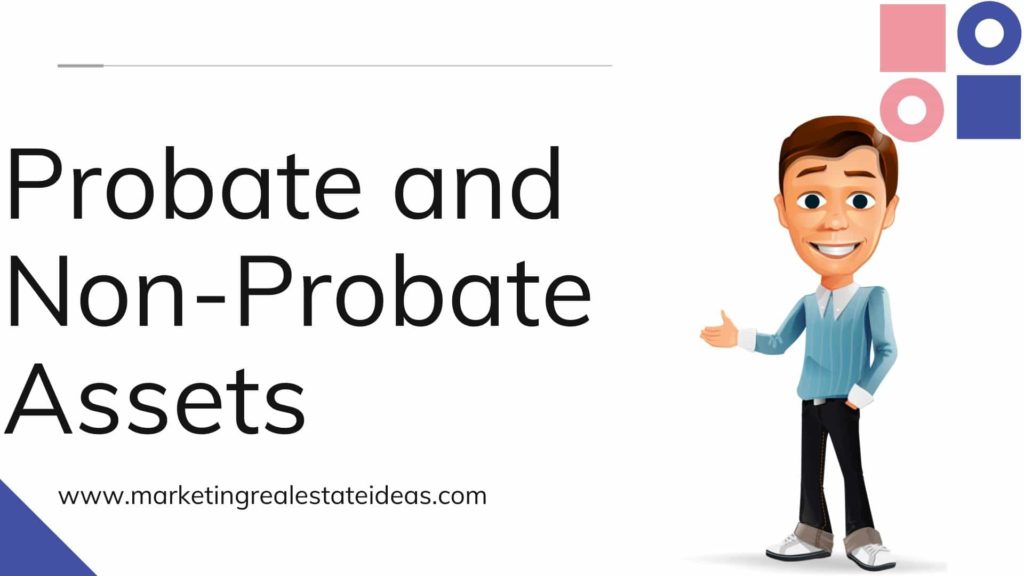Today we are talking about the difference between probate and non-probate assets & Solicitor for Probate. You can read this post completely.
Having an understanding of the difference between these two types of assets.
It is really the foundation of understanding your estate planning.
Probate Assets

Probate assets are those assets that a person owns in his or her own name alone when he or she passed away.
So if your name is the only name on the deed to your house that’s a probate asset.
If you are listed as the only owner of a bank account or a savings account that’s a probate asset.
If you are the sole member of a limited liability company or sole shareholder of a corporation your business interest is a probate asset you get the idea.
The Key thing About Probate Assets
So here’s the key thing about probate assets.
They have to pass through probate which is a court-supervised process that formally qualifies a personal representative to handle the lining up of a person’s estate.
There are fees taxes and delays associated with probate. I’ve actually come to learn that this process can intimidate a lot of people who often come to us for legal advice and help to navigate that process, which yep you guessed it results in additional legal fees.
Lastly, probate does require the recording of the will in the courthouse which does make it a public record.
So for those who wish to keep their affairs private, probates not usually the answer.
Non-Probate Assets
Now non-probate assets are those assets where at least one other person has a present or future interest in the property.
So for example, if you own your home jointly with your spouse, that’s a non-probate asset because your spouse is already on the title,
So he or she becomes the legal owner automatically at your depth.
Likewise, if you’ve named your spouse or adult children as beneficiaries on life insurance or a retirement account.
Then your chosen beneficiaries automatically receive those assets at your death by contract and again outside of the probate process.
Do I need a solicitor for probate?
Some people say you always do they’re wrong but there are plenty of reasons why you might want to use one.
For example
- if the estate is taxable.
- it’s particularly complex.
- if the deceased was bankrupt.
- if there are complications with the will.
- if someone disputes the whale or your right to deal with probate or if you just want the support of a lawyer.
So sometimes is the right thing to do but there are no legal requirement to use a solicitor for any part of the probate process.
The one recent survey suggests that nearly 50% of the pro base is conducted without assistance from a lawyer.
Applying For A Grant Of Represntation
- Attend a Probate Registry
- About 15 Min
- Swear an oath
If you’re dealing with probate yourself there are some differences from the process you’d go through if you were using a solicitor.
The main one is you have to attend a probate registry.
There are plenty dotted around the country and there should be one fairly close to you.
You’ll be there for about 15 minutes and you’ll be asked to swear an oath.
Cost of Application
In total the application costs 105 pounds. If you’re using a solicitor the application only costs 45 pounds.
But there will be solicitor fees on top of that.
You’ll also pay a few pounds for copies of the grant of representation.
Probate With or Without a Solicitor
The reason for this difference is that a small part of the probate process is a reserved activity.
This means that only a solicitor or other authorized person can prepare an oath. Which is a vital part of applying for a grant?
That’s why if you’re not using a solicitor you need to swear the oath at a probate registry.
If you are using a solicitor he or she can prepare the oath and they’ll ask you to swear it in front of an independent solicitor or Commissioner for oaths.




One thought on “Difference Between Probate and Non-Probate Assets | Solicitor for Probate”